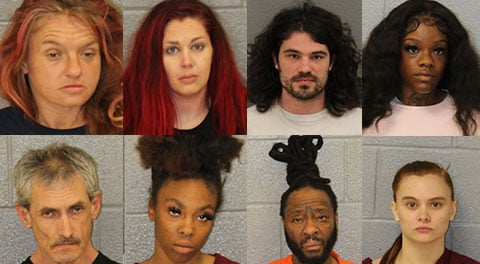South Carolina teachers react to a House bill that aims to record all classroom instruction
ROCK HILL, S.C. — South Carolina teachers are reacting to a bill that would mandate that they are recorded every day, all day, while teaching in the classroom. WCCB Charlotte’s Zane Cina talked with the bill’s primary sponsor and educators who oppose it.
One Rock Hill teacher who did not want to be identified said she is worried about the consequences of House bill 3216. The bill would make it mandatory that all k-12 classroom instruction be recorded. According to the bill’s text this would extend to teacher lectures, guest lectures, classroom discussions, and other instructional activities, whether conducted in-person or virtually. “It just feels like another step that teachers aren’t treated as professionals,” said the Rock Hill teacher.
The bill’s primary sponsor is Greenville County Republican, representative Mike Burns. Sarita Edgerton, a Spartanburg County Republican was added as a co-sponsor early February. House rep. Burns spoke with WCCB Thursday to explain what he hopes his proposed bill will achieve. Burns argued that new rules have removed phones from the classroom for many school districts around South Carolina. Burns believes this makes it harder to keep teacher instruction in check. The representative pointed to examples of educators teaching subject matter not included in the State’s curriculum, which he believes goes against what students should be taught.
“We’ve had instances reported and kids recorded some things teachers were teaching that the school districts hadn’t authorized,” Burns said. “They were teaching some of this woke agenda where, you know, you’re sexualizing kids, talking all kinds of trans stuff… and the parents weren’t aware of it.”
South Carolina Education Association President, Sherry East, called the proposed legislation a “gotcha bill” that would only be a tool for monitoring teacher actions. “Its a gotcha bill,” East said. “Like, we want to catch teachers doing something they’re not supposed to be doing.” East also questioned how the bill could even be implemented, while she pointed to additional cost concerns for each of South Carolina’s more than 1,100 schools across 79 districts.
The proposed bill states it would would require all classroom recordings to be made available to the public through the State’s Freedom of Information Act, or FOIA, for five years. Bill text also details that it would be up to individual schools to hide student and teacher identities in recordings. East argued this would take a massive amount of additional resources for each school district, and she is worried it could introduce a safety concern for students and teachers. “There are lots of bad people out there that would love to get their hands on children,” East said, “I feel like this [bill] would open them up to that.”
WCCB questioned Burns on how expects schools to afford installing and maintaining additional cameras for each classroom. Burns believes it will possible with the State’s education budget, which he says is currently close to $15 billion. “They got cameras everywhere in these schools,” Burns said, “so you’re not talking about a whole lot more money to have cameras in classrooms too.”
A Rock Hill teacher feels some schools are currently underfunded and money spent on additional cameras could be better used in other areas. “We’re going to spend all this money on cameras,” the teacher said, “where some schools don’t have working heat or working air conditioning.”
Bill 3216 states that any school that fails to comply with recording requirements or FOIA provisions may face penalties, which could include fines or even administrative action. The bill has been referred to the Committee on Education and Public Works. Burns anticipates it will stay stalled there until at least April, as the House is currently dealing with higher priority items such as the State’s budget. Burns hopes his bill will be able to pass the House.
One upstate House representative who did not want to be named speculates bill 3216 will not make it past the house floor, as some see it as a more radical approach to solving the problems that come with instructor subject matter.
Educators want to inform parents of this proposed bill in an effort to shed light on issues surrounding teaching. “It’s definitely eye opening to see where the priorities are,” said a Rock Hill teacher.





